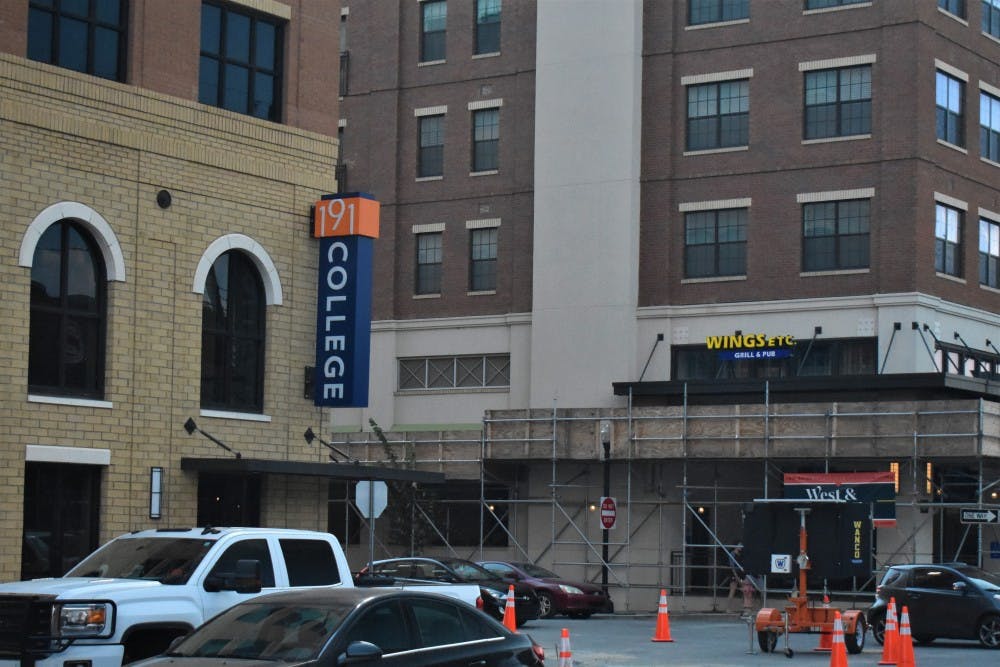The Auburn City Council approved an ordinance prohibiting the construction of purpose-built student housing for 90 days at its Feb. 18 meeting. The ordinance, effective immediately, restricts the construction of private dormitories and academic detached dwelling units within Auburn city limits.
The City’s Zoning Ordinance defines private dormitories as a building or buildings not operated by an academic institution containing rooms intended to house students of academic institutions. It also defines an ADDU as a freestanding structure, separate from all other structures, intended to house no more than five students of academic institutions.
According to the moratorium, found in the Feb. 18 City Council ePacket, the purpose of the moratorium is to give the City adequate time to “review, assess and recommend potential regulatory tools” for managing a proliferation of student housing.
“So now, we’re looking at what needs to be done, if anything, in these next 90 days to address what some people think is the overabundance of student housing,” said City Manager Jim Buston.
The Council directed the City's Planning Department to research and review student housing in Auburn to determine what further action, if any, needs to be taken to ensure there is not an overabundance of student housing in Auburn. Buston mentioned three possible strategies, such as imposing additional building requirements.
“We might look at, if you’re going to build to a certain height, you’ll have to use steel instead of wood,” Buston said. “That would raise some costs.”
Buston also described limitations on a private dormitory’s total number of bedrooms and possibly rezoning certain areas to limit growth, if the Planning Department finds it necessary.
The ban on construction does not apply to developers that have reached a certain point in development. If the developer has received a foundation permit, they may continue or begin construction as usual, Buston said. This includes projects such as 320 West Mag and Uncommon Auburn, which are currently under construction.
Since it was the first reading of the ordinance, it required unanimous consent from the present Council members to vote on it, which it received.
The Council voted in favor of the student-housing moratorium. Ward 3 Council Member Beth Witten was absent from the meeting for a prior planned work-related event, and Ward 4 Council Member Brett Smith who said he chose not to vote for ethical reasons.
Smith, an attorney, said he received an opinion from the City’s ethics commission and the Alabama Bar Association to withhold from the vote due to a professional relationship with one of his clients, who he said is a property owner in Auburn.
“It wasn’t gonna change the vote, no matter what I did, so it’s important I just do what I should,” Smith said.
The ordinance cites the Auburn University Board of Trustees’ decision to limit undergraduate enrollment to 25,000 students as a reason to halt the construction of housing. Prior to the enrollment cap, the Danter Report, a student-housing study conducted every three years with the most recent study in 2018, found that the student-housing market in Auburn could successfully absorb approximately 400 new beds a year if the student population continued to grow at its current rate.
The ordinance says there is “growing concern” that the construction of private dormitories and ADDUs in Auburn is exceeding 400 beds per year, despite the minimal growth expected in the student population as a result of the enrollment cap.
Ray Huff, owner of Auburn Realty, said he’s glad the City has taken action.
“It’s great," Huff said. "I’m glad they passed it."
However, he thinks something could have been done previously to avoid what he sees as student housing overabundance.
“Wish they would’ve done this 5 or 6 years ago,” Huff said. “It might be a little different right now.”
The Planning Commission unanimously recommended the moratorium proposal at its Jan. 9 meeting.
The moratorium will continue through May 27, 2020, but the Council has the power to terminate or extend the moratorium at any time. The Council doesn’t seem likely to extend the moratorium, Buston said.
“The Council was pretty adamant when they originally talked about this that they don’t really want to extend it,” Buston noted. “They want something in 90 days.”
Do you like this story? The Plainsman doesn't accept money from tuition or student fees, and we don't charge a subscription fee. But you can donate to support The Plainsman.

Evan Mealins, senior in philosophy and economics, is the editor-in-chief of The Auburn Plainsman.





